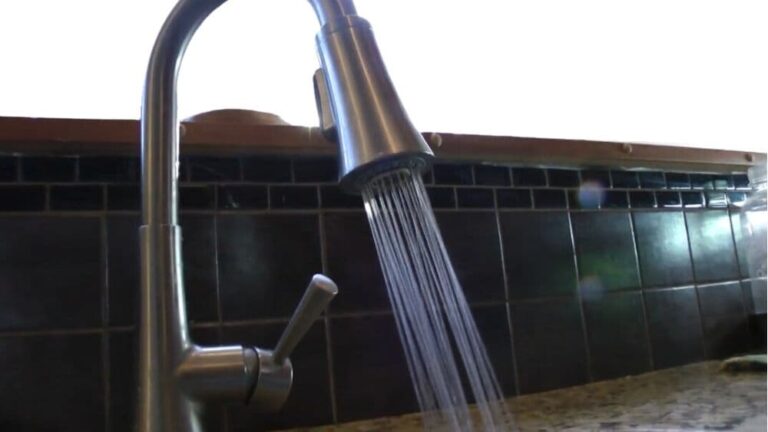
Mastering Hydroponics: How to Treat Tap Water Effectively
Know the role of tap water in hydroponics
There’s more to tap water than just H2O. In the US, tap water usually contains minerals, chemicals, and other safe things to drink. However, it might not suit your plants. So, why is treating tap water so crucial in hydroponics?What’s in a typical glass of tap water:
Most cities and towns in the US treat their drinking water to ensure safety; however, added chlorine or chloramines kill bacteria and other harmful organisms.
Also, depending on its origin, tap water can have minerals like calcium, magnesium, and trace metals. Even though these things aren’t dangerous, they can make it difficult for a plant to absorb nutrients in a hydroponic system.Rainwater that falls naturally:
Even though it is slightly acidic, it is usually considered soft water. It doesn’t have many minerals like tap water does. Over thousands of years, plants have adapted to soft rainwater. You cannot always use rainwater, but knowing this difference highlights how critical it is to treat tap water.Aside from chlorine and chloramines, tap water can contain contaminants like lead, especially if it passes through older infrastructure. Fluoride is another common ingredient in tap water that hurts some plants when used in hydroponics. The first step to ensuring your tap water is safe for your plants is to find out what’s in it.Why tap water is vital in hydroponics
Imagine giving your plants a nutrient-rich solution and then seeing them wilt or show signs of nutrient shortages. Who did it? Uncleaned tap water: Determine why treating tap water well is essential for hydroponics.Effects on plant growth and health:
Plants absorb chemicals from water through their roots. However, water containing other minerals and chemicals can prevent this process. Consequently, tap water that hasn’t been cleaned can kill your plants, even using a nutrient-rich solution.Chlorine and chloramines could be dangerous:
Chemicals like these help make water safe to drink, but not for plants. Chlorine can hurt healthy bacteria that help plants absorb nutrients. When chloramines, chlorine, and ammonia are mixed, they remain in the water longer and burn the roots.Effects of Mineral Imbalances on Nutrient Uptake:
‘Rigid’ tap water, high in minerals like calcium and magnesium, can cause nutrient imbalances in hydroponic systems. Some chemicals may be too much for a plant to use, while others may not be enough. It can cause plants to turn yellow, slow growth, or even kill them.
Steps to Effectively Treat Tap Water for Hydroponics
It is a way to grow plants in a water-based environment. Treating water is the key to this soilless system working. So, how do you treat tap water in your setup so it works? Let’s look at the most critical steps.
Dechlorination:
Most tap water in the US has chlorine and chloramines to kill dangerous bacteria. However, some of these chemicals harm plants.
Letting water sit:
Letting water sit for 24 to 48 hours is one of the easiest ways. During this time, chlorine will naturally evaporate, but chloramines don’t always go away this way.
Using Activated Carbon Filters:
Using activated carbon filters is an effective way to remove chlorine and chloramines. Moreover, they are easy to set up, ensuring these chemicals don’t get into the water for your plants.
Softening Water:
Most drinking water in the United States is problematic because it has many minerals, like calcium and magnesium. Even though these minerals aren’t dangerous, they can throw off the nutrient balance.
Ion-Exchange Resins:
These resins swap calcium and magnesium ions in harsh water for sodium or potassium ions, so the result is soft water with the right amount of minerals.
Reverse osmosis:
This is a rigorous way to filter water that removes almost all minerals; consequently, hydroponics usually follows with re-mineralization, which adds essential minerals.
Balancing pH levels:
For hydroponics to work well, plants need a specific pH level to receive nutrients.
Use pH up/down solutions:
You can buy solutions that raise or lower the water’s pH, ensuring it’s in the proper range for your plants.
Natural Methods:
Lemon juice and baking soda are effective, eco-friendly ways to change pH levels. But tracking is necessary to keep things the same.
Pathogen Removal:
Pathogen-free water is essential for plant health.
Ultraviolet (UV) sterilization:
Without adding chemicals to the water, UV light kills dangerous microorganisms. Hydroponic enthusiasts use this method.
Boiling or pasteurizing:
Boiling tap water is an old method that kills germs. However, it takes more time and may only be possible on a limited number of systems.
New methods for treating tap water
Filtration systems for the future:
Aside from simple carbon filters, there are also multi-stage filters that use soil, carbon, and other ways to filter water. These ensure your plants get the cleanest water.
Re-mineralization after treatment has these benefits:
Re-mineralization is essential, especially when using reverse osmosis. Restoring the right minerals ensures your plants get all the essential nutrients.
Conditioners for water:
There are cleaners on the market that get rid of chlorine, balance the pH, and sometimes even add healthy bacteria. Consequently, they have everything you need to treat tap water in one place.

Maintenance and regular checks
The first step is to learn how to treat tap water well. Regular testing ensures the water quality stays the same.
Testing the water regularly:
Buy a reliable water-checking kit. It lets you check pH, minerals, and other vital factors. When you often test your plant’s water, your plants will get the best water, even if treated.
Signs of healthy water quality:
Keep an eye on your plants. Water quality problems can appear as yellowing leaves, reduced growth, or other strange things. Therefore, adjust your treatment based on what you’ve seen.
Adjusting Treatments:
Depending on the season, tap water quality can change. Be prepared to adjust your treatments. For instance, tap water might have more chlorine in the summer. Understanding this can help you determine how to dechlorinate.
Case studies from the real world
Knowing “How to Treat Tap Water Effectively” in hydroponics is about more than just theory. It’s about how it works in the real world and its effects. Let’s look at real-world examples to show how vital this process is.
Case Study 1: Tom’s Garden of Growing Lettuce
Tom, a hydroponics fan from Chicago, was confused when his cabbage plants stopped growing and the leaves turned yellow. Since he got his water from the city tap, he didn’t know the high chlorine level would hurt his plants.
Tom put in activated carbon filters after researching and learning how to treat tap water well; it was clear that something had changed. As a result, the lettuce grew well, and its leaves got crisper and greener.
Case Study 2: Sarah’s Change to Neutral pH Water
Sarah’s tomato plants in her hydroponic system in Phoenix showed signs of nutrient burn. Even though she gave them the right minerals daily, the tomatoes didn’t take them in.
Initially, she tested and found that her home’s water was alkaline. Sarah learned how to treat tap water well and started using natural methods to change its pH level. As a result, her tomatoes grew large and strong within a few weeks, and their bright red fruits filled her yard.
Key Takeaways:
– It’s not just about adding nutrients; ensuring the water’s quality is paramount.
– Recognizing the signs early on can prevent prolonged damage to the plants.
Questions Most People Ask
How can I treat tap water for hydroponics at home?
You can treat tap water for hydroponics by removing chlorine, adjusting the pH, and adding nutrients. However, water treatment depends on where it comes from and what your plants need.
Are there any natural or DIY methods of treating tap water for hydroponics?
Yes, leaving tap water out for 24 hours can help chlorine evaporate. Compost tea can also improve water quality. You must research and monitor these methods to ensure they suit your plants.
What’s the ideal pH level for hydroponic water, and how can I maintain it?
The appropriate pH level is usually between 5.5 and 6.5, depending on the plants. Moreover, you can use chemicals or liquids that change the pH to stabilize the level. Furthermore, checking on plants regularly and making changes to ensure they absorb nutrients well is essential.
How often should tap water for hydroponics be treated?
Doing this whenever you add water to your hydroponic system is most effective. Regularly giving your plants the same care gives them a stable environment.
Can my plants die if I don’t treat the tap water?
Indeed, raw tap water contains chlorine, chloramines, and other harmful chemicals for plants. Consequently, these can slow plant growth or even kill it over time.
Is bottled water safe to use instead of tap water in hydroponics?
Even though bottled water has fewer contaminants, it might not have the minerals plants need. It is often cheaper and better for the earth to treat tap water well.
What are the signs that my hydroponic system’s water is contaminated?
Yellowing leaves, slow growth, root rot, and fertilizer burn are all signs. However, you can find these signs early if you regularly check your plants and water.
At the end
In the world of hydroponics, which is constantly changing, knowing “How to Treat Tap Water Effectively” is the key to success. As urban gardening and sustainable agriculture become more popular, especially among growers in the US, it becomes more critical than ever to ensure the water used is clean and safe. As real-world case studies show, treated tap water helps more than staying alive. It also makes hydroponic plants grow and thrive.
If you want your plants to flourish, remember that water is the key to their health. If you put quality first, nature will reward you.
Knowing how to treat tap water properly is critical, whether you’re a beginner or a seasoned grower. Jump in, try things out, and learn; your garden will grow like never before.

Meet Milan Cole, your urban gardening pro!
Milan Cole, chief content writer at Maven Gardening and an urban gardening expert, is passionate about helping city dwellers cultivate their green thumbs. Armed with extensive horticultural knowledge, Milan provides practical advice for overcoming urban gardens’ challenges, like limited space, water scarcity, and reduced sunlight.
His expertise extends beyond traditional methods, encompassing innovative approaches like hydroponic and aquaponic systems and sustainable gardening practices. Milan skillfully adapts these techniques to urban environments, considering factors like pollution and climate change.
In his clear and concise writing, Milan offers actionable solutions for anyone wanting to bring life to an urban space. He shares valuable insights into growing herbs in tight spaces, maximizing the potential of window boxes, and transforming even the most miniature balconies into thriving green oases.
Milan’s guidance is straightforward and practical, making it ideal for anyone looking to cultivate their own urban garden, regardless of prior experience.
Join Milan Cole on your journey to metropolitan Eden!
